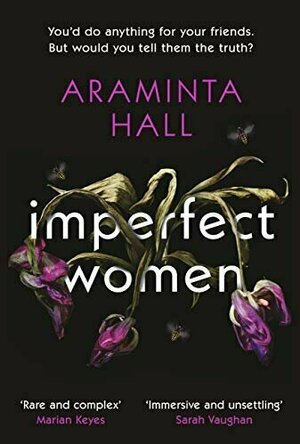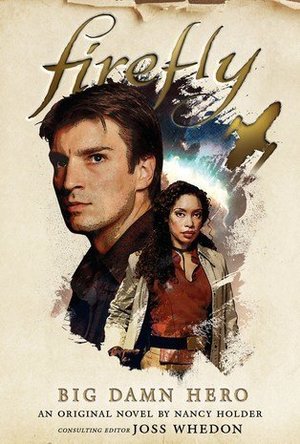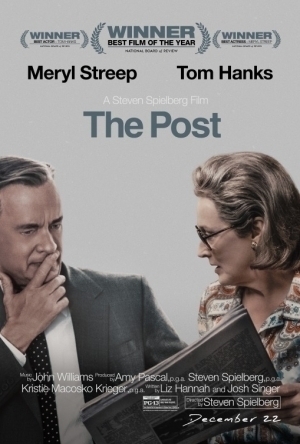Kristy H (1252 KP) rated Imperfect Women in Books
Sep 17, 2020
"Eleanor felt a jolt of terror pass through her as she realized that everything about Nancy's death was worse than any other death anywhere. They would all suffer, and nothing would ever be the same again."
This was a truly fascinating book: it's part character-driven mystery and part insightful look at the role of women in society. It's told from the point of view of the three friends, but not the usual quick back and forth: we get large chunks of the story told from one woman at a time. Truths unfold slowly, as we learn bits and pieces about Eleanor, Nancy, and Mary--from themselves and each other.
The focal point of the story is Nancy's rather gruesome murder, but Hall fills her tale with thoughts and ruminations on women and how they are seen in society--and how they feel they are perceived. In some ways, it felt like a bunch broad generalizations applied to women, yet as I read, I found that most of them really rang true. I was furiously highlighting passages, nodding my head yes!
At times, it was hard to see where this book was going. Murder? Deep thoughts? It certainly straddled the line on both. In terms of Nancy's murder, I had a good chunk figured out early on, but the story certainly kept me engaged, reading and wondering if I was right. All three flawed (imperfect, indeed) women were interesting in their own way, and I liked each woman's section. I found this to be a very well-written book, but it's not a snappy thriller.
If you want a fast whodunit, this isn't for you. But if you want a well-done and thoughtful read, I recommend Hall's latest. It's a suspenseful and insightful look at love, marriage, and friendship. 4 stars.
Joe Goodhart (27 KP) rated Firefly: Big Damn Hero (Firefly #1) in Books
Nov 30, 2020
It's been ages since I read any fan fiction, as so much of it, at the end of the day, was just glorified 'Shipping. It's been almost two months since I have picked up anything (comic or prose) to read, as my wife and I have been through a hellish two months (started with the MS diagnosis, and ended with our 14 year old Mini Schnauzer having to be put to sleep). Long story short, not a whole hell of lot of reading going on my life, as I have been walking around in a fog, caring not one whit about much of anything, including eating or reading.
FIREFLY: BIG DAMN HERO came out on my Kindle November 20th, the day before my 50th birthday (without Lily, our 14 y.o. Mini, no longer with us, it was more like an UnBirthday, as I really felt it was no longer worth celebrating). I read the first two Chapters, or rather, I <i>tried</i>, but they seemed as though I had not when I returned to the book last week.
No matter, for it appeared not to affect my overall satisfaction that the FIREFLY prose novels were off to a very good start indeed! And I was able to focus my attention enough to finish the book in such a quick time!
From beginning to end, we are a presented with a tale of the SERENITY and her crew early in the first Season. Everyone is true to form, from Mal to Wash and Zoë to Simon and River, etc. No one ever seemed out-of-character.
At a base level, this was a Mal-centric story. We gain some backstory into his past, on Shadow, just prior to the War. We are also given an inside track to his inner thoughts, allowing us to gain an even deeper understanding of his character, beyond what we learned in the short-lived TV series and subsequent movie SERENITY.
DOCTOR WHO is a hot mess right now, something I am unable to get behind (after being a fan for almost 48 years). Too many changes, good and bad. Fortunately, though, FIREFLY remains the same, untouched, let to continue as the way it was intended, and I am totally fine with that!
If you love FIREFLY as much as I do, you owe it to yourself to pick this one up!
Gareth von Kallenbach (980 KP) rated The Post (2017) in Movies
Jul 11, 2019
When you hear the high caliber names such as Hanks, Streep, Speilberg, you can almost guarantee a top notch film with unbelievable emphasis on character development. They definitely did not disappoint! The Post works as a history lesson. Not only does it portray the events that took place with such thorough details, it exemplifies the relationship between not only a journalist and their source, but also the personal struggle between the editor, the owner of the newspaper, their friends who hold major positions within the government, and the moral obligation to at least get the truth out to the public.
The set design, the costume design, the characters’ mannerisms are flawless. Even the way social interaction was demonstrated between men and women. Women’s role is in the home, cooking, cleaning, and entertaining. Something so simple as the use of a rotary phone played such a nostalgic role. I can’t say enough about the wonderful acting skills of both Streep and Hanks. I suspect one or both with be receiving some serious accolades during awards season. Streep and Hanks both shine throughout the entire film. They both did a great job at relaying the emotions and the turmoil these characters faced.
Many lines throughout the movie–“if we don’t hold them accountable, than who will?”–ring true to a lot of the issues affecting us today.

TV Romania - Posturile tale favorite din România
Entertainment and Photo & Video
App
NU MAI CĂUTA, tocmai ai găsit cea mai avansată aplicație de vizionare a posturilor TV din...

GT Racing 2: The Real Car Experience
Games and Entertainment
App
GT Racing 2: The Real Car Experience is a true-to-life automotive journey featuring the most...
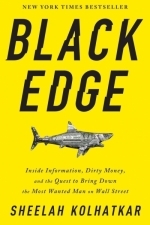
Black Edge
Book
The rise over the last two decades of a powerful new class of billionaire financiers marks a...
Finance

Slots! Jackpot Party Casino
Games and Social Networking
App
Enjoy exciting casino slots @ the original Jackpot Party Casino – the best slots app with over 70...
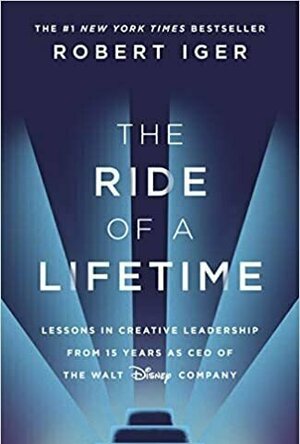
The Ride of a Lifetime
Book
The CEO of Disney, one of Time’s most influential people of 2019, shares the ideas and values he...
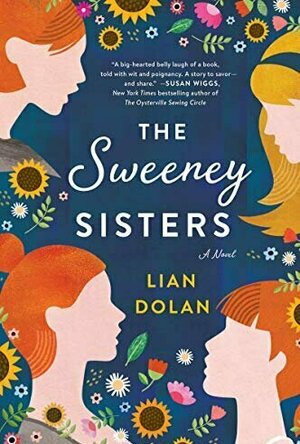
The Sweeney Sisters
Book
"This is a big-hearted belly-laugh of a book, told with wit and poignancy. Family secrets, laughter...

Progress to 100
Games and Entertainment
App
Interact with your iPhone or iPad in ways that you never thought possible! Get ready to be puzzled...
